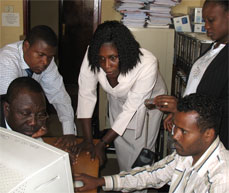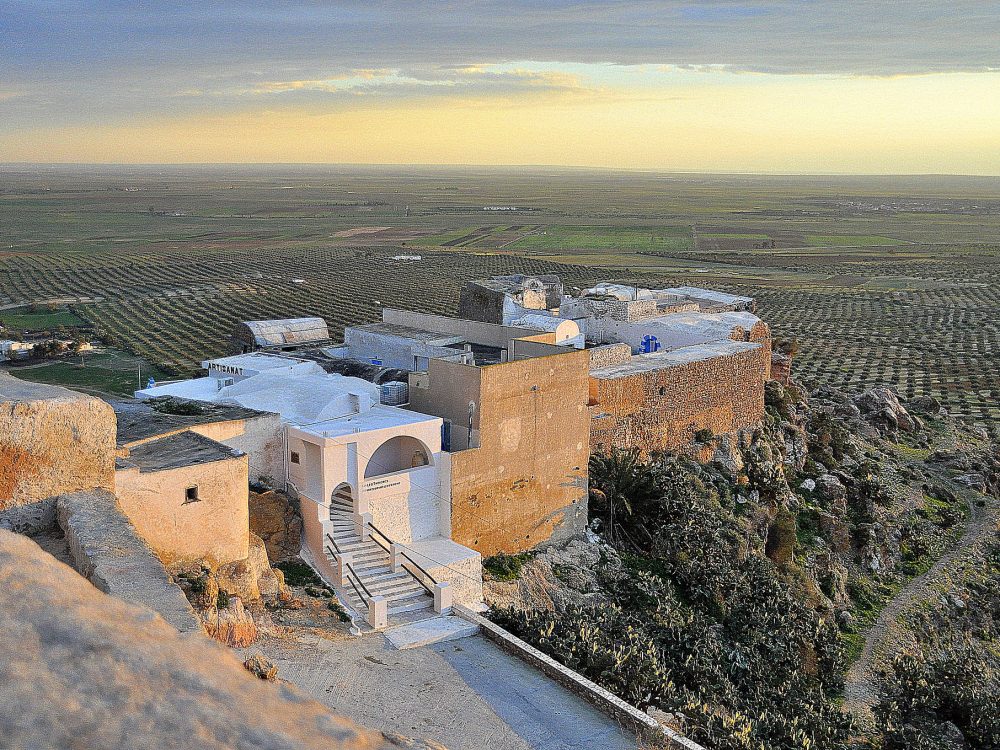Facilitating Partnerships
|  |
| Staff from the Ministry of Finance and Economic Development show visitors from Ghana how to use the aid management platform. |
Ethiopia
Just two years ago, Ethiopia, one of the largest recipients of development assistance, lacked a system to manage the more than $1 billion in official aid that donors give each year. Today, that has changed. The once cumbersome system of spreadsheets has been replaced by the Aid Management Platform (AMP), an integrated system for tracking development assistance.
AMP has helped transform aid management practices in Ethiopia. Replacing manual tracking systems with a secure, virtual workspace, AMP has enabled the government to have a comprehensive view of all aid activities, resulting in more informed decision-making and planning. The Ethiopian government has dramatically reduced transaction costs and saved time through the creation of customized donor reports. With this reporting feature, users can easily create reports, filtering by a host of fields—sector, donor, project, status—and displaying commitments, disbursements, and expenditures.
“The government owns the source code and can make future modifications ourselves with local resources at local rates,” Fisseha Aberra of the Ministry of Finance and Economic Development, the entity that first piloted the program. “The license also gives us the ability to distribute the code to other agencies within our government.”
AMP is not just a turnkey technical solution. To implement AMP, staff from Development Gateway trained the Ethiopian users on the software to ensure the sustainable use and maintenance of the application.
With the successful adoption of AMP, the Ethiopians were able to share their knowledge and experience with other countries in the region. In 2006, the government hosted a delegation of staff from Ghana. For three days, they met with their Ghanaian counterparts to demonstrate the technology, discuss the policy environment, and share lessons learned.
Ethiopia has benefited from the technology and processes associated with AMP. Now it is able to assist other countries in the region improve aid management.
Share This Post
Related from our library

How Useful Is AI for Development? Three Key Lessons
The development world is buzzing with excitement over the idea that new and emerging applications of AI can supercharge economic growth, accelerate climate change mitigation, reduce inequalities, and more. But what does this look like in real life?

At a Glance | Tracking Climate Finance in Africa: Political and Technical Insights on Building Sustainable Digital Public Goods
In order to combat the effects of climate change, financing is needed to fund effective climate fighting strategies. Our white paper, “Tracking Climate Finance in Africa: Political and Technical Insights on Building Sustainable Digital Public Goods,” explores the importance of climate finance tracking, common barriers to establishing climate finance tracking systems, and five insights on developing climate finance tracking systems.

AMP Through the Ages
15 years ago, AMP development was led by and co-designed with multiple partner country governments and international organizations. From a single implementation, AMP grew into 25 implementations globally. Through this growth, DG has learned crucial lessons about building systems that support the use of data for decision-making.